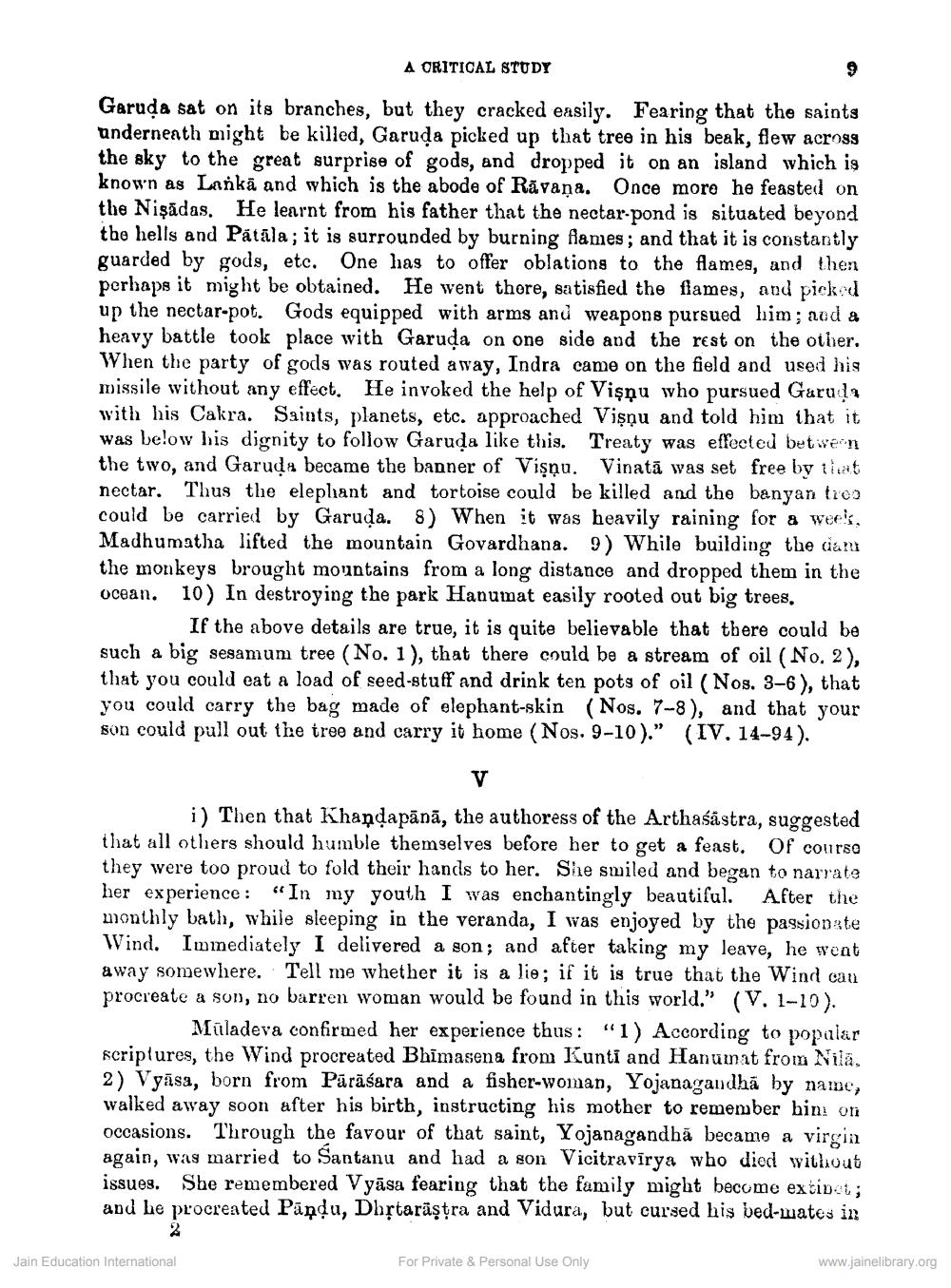________________
A CRITICAL STUDY
Garuda sat on its branches, but they cracked easily. Fearing that the saints underneath might be killed, Garuda picked up that tree in his beak, flew across the sky to the great surprise of gods, and dropped it on an island which is known as Lanka and which is the abode of Ravana. Once more he feasted on the Nisadas. He learnt from his father that the nectar-pond is situated beyond the hells and Patala; it is surrounded by burning flames; and that it is constantly guarded by gods, etc. One has to offer oblations to the flames, and then perhaps it might be obtained. He went thore, satisfied the flames, and picked up the nectar-pot. Gods equipped with arms and weapons pursued him; and a heavy battle took place with Garuda on one side and the rest on the other. When the party of gods was routed away, Indra came on the field and used his missile without any effect. He invoked the help of Visņu who pursued Garuda with his Cakra. Saints, planets, etc. approached Visqu and told him that it was below his dignity to follow Garuda like this. Treaty was effected between the two, and Garuda became the banner of Vişņu. Vinata was set free by tint nectar. Thus the elephant and tortoise could be killed and the banyan troo could be carried by Garuda. 8) When it was heavily raining for a week, Madhumatha lifted the mountain Govardhana. 9) While building the dam the monkeys brought mountains from a long distance and dropped them in the 10) In destroying the park Hanumat easily rooted out big trees.
If the above details are true, it is quite believable that there could be such a big sesamum tree (No. 1), that there could be a stream of oil (No. 2), that you could eat a load of seed-stuff and drink ten pots of oil (Nos. 3-6), that you could carry the bag made of elephant-skin (Nos. 7-8), and that your son could pull out the tree and carry it home (Nos. 9-10)." (IV. 14-94).
V
i) Then that Khandapänä, the authoress of the Arthasástra, suggested that all others should humble themselves before her to get a feast. Of cours they were too proud to fold their hands to her. She smiled and began to narrate her experience: "In my youth I was enchantingly beautiful. After the monthly bath, while sleeping in the veranda, I was enjoyed by the passionate Wind. Immediately I delivered a son; and after taking my leave, he went away somewhere. Tell me whether it is a lie; if it is true that the Wind can procreate a son, no barren woman would be found in this world." (V. 1-10). Maladeva confirmed her experience thus: "1) According to popalar scriptures, the Wind procreated Bhimasena from Kunti and Hanumat from Nilä. 2) Vyasa, born from Päräsara and a fisher-woman, Yojanagandha by name, walked away soon after his birth, instructing his mother to remember hin on occasions. Through the favour of that saint, Yojanagandha became a virgin again, was married to Santanu and had a son Vicitravirya who died without issues. She remembered Vyasa fearing that the family might become extinos; and he procreated Pandu, Dhṛtaraşṭra and Vidura, but cursed his bed-mates in
2
Jain Education International
For Private & Personal Use Only
www.jainelibrary.org




